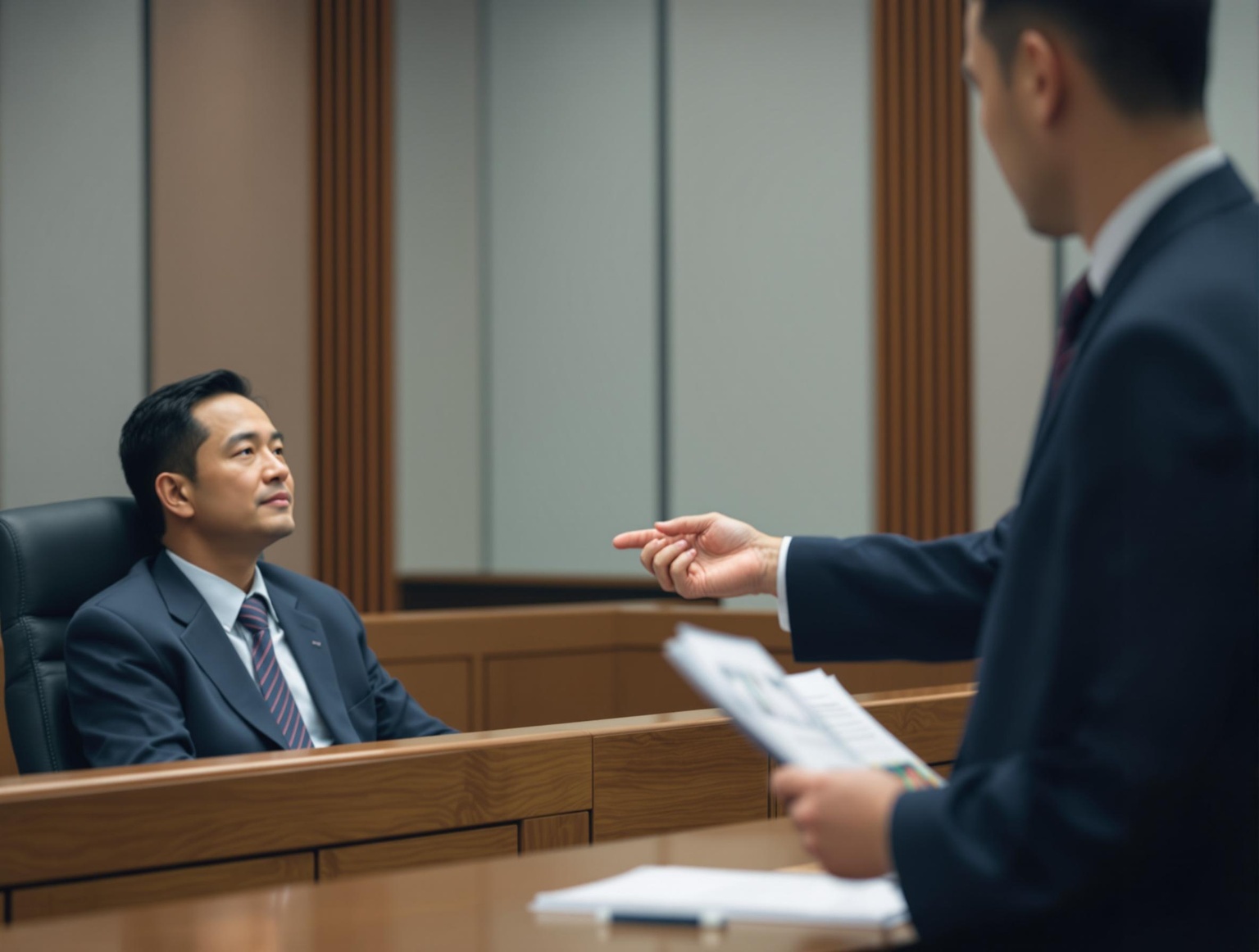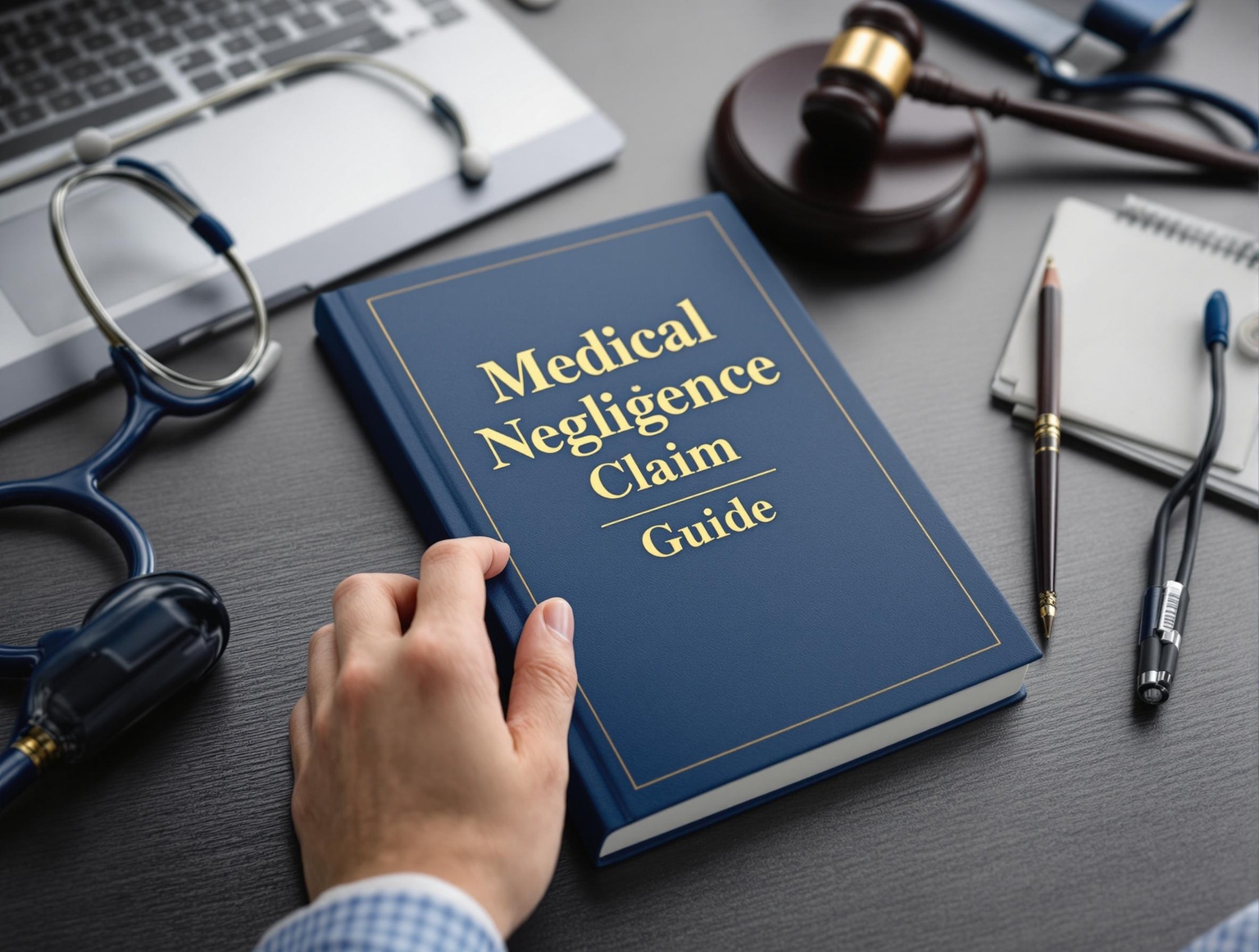1. How Do Courts Determine Medical Negligence?

In Hong Kong, millions of individuals utilize public and private healthcare services each year. The healthcare professionals providing these services, among others, include internists, surgeons, specialists, psychiatrists, dentists, physiotherapists, nurses, and medical assistants. Patients rely heavily on the professional standards of these healthcare professionals. Despite their professional training, errors can occur during the treatment process, and medical incidents are not uncommon due to inherent risks in medical procedures.
Not every medical incident necessarily results from medical negligence. To establish medical negligence, the following criteria must generally be met:
Deviation from Standard Practice: The healthcare professional must have deviated from standard medical procedures, either by not following accepted practices or by performing actions that are not recognized by the medical community as appropriate.
Comparison with Peers: The performance and actions of the involved healthcare professional will be compared with the skills and professional standards exhibited by peers in similar or comparable situations. If the procedure used by the healthcare professional is consistent with that generally employed by peers, the court will assess whether medical negligence occurred based on prevailing professional standards. The healthcare professional is not required to meet the highest standards of practice but must adhere to generally accepted levels of care. For example, if a patient's treatment falls below the standard of care expected from trained healthcare professionals, it may constitute medical negligence.
Additionally, to determine whether a healthcare professional has committed medical negligence, the court must evaluate:
- Whether the healthcare professional obtained informed consent from the patient before performing the medical procedure.
- Whether the patient was adequately informed of all significant risks associated with the medical procedure.
- Whether appropriate alternative treatments with less risks were suggested to the patient.
- If a healthcare professional fails to obtain prior consent, does not inform the patient of significant risks, or does not present alternative options, they may be held liable for medical negligence.
However, healthcare professionals are not obligated to guarantee a cure. Their responsibility is to provide reasonable professional care and skill during the treatment process. As long as the healthcare professional acts according to generally accepted practices, they will not be considered negligent, even if other practitioners might have employed different methods. Conversely, if a healthcare professional deviates from standard practices without justification and causes harm, they may be found negligent for failing to meet the duty of care.
Patients should not misuse "medical negligence" as a basis for legal action solely because treatment outcomes are unsatisfactory. A patient must provide sufficient evidence to demonstrate that the level of care received was below the generally accepted standard for trained healthcare professionals. Otherwise, if a patient loses the case in court, they may be liable for legal costs incurred by the healthcare professionals and the hospital (or their liability insurers).
Examples of potential medical negligence include, but are not limited to:
- Failure to provide timely treatment
- Failure to refer the patient to a relevant specialist in a timely manner
- Failure to explain the treatment procedure
- Failure to inform the patient of risks involved in the treatment
- Failure to offer other suitable treatment options
- Performing treatment without the patient’s written consent Diagnostic errors
- Diagnostic errors
- Delayed diagnosis
- Medication errors
- Leaving instruments or other objects inside the patient during surgery
- Failure to arrange follow-up care
- Failure to arrange further tests
- Misdiagnosis based on X-rays, examinations, or test results
- Errors in treatment arrangements at a clinic or hospital
- Use of unsterilized equipment
- Infections acquired during hospital stay
- Administration of prohibited or inappropriate medications.
- Performing unplanned surgeries
- Failure to identify detectable conditions, etc.
2. Can Patients File Complaints with the Medical Council of Hong Kong Regarding Medical Negligence or Medical Incidents?

The Medical Council of Hong Kong was established under the Medical Registration Ordinance (Cap. 161 of the Laws of Hong Kong) with the aim of maintaining the standards of the medical profession, safeguarding patient rights, and enhancing the ethical and professional conduct of healthcare practitioners. The Medical Council of Hong Kong is responsible for: (1) Setting Professional Codes: Including the "Code of Professional Conduct for (2) Registered Medical Practitioners in Hong Kong." Regulating Disciplinary Actions: Overseeing the discipline of doctors. (3)Addressing Public Inquiries: Responding to public questions regarding medical incidents.
All registered doctors are required to adhere to these professional codes, and violations may result in disciplinary actions by the Medical Council. However, a finding that a medical professional has breached the professional code does not necessarily imply that the professional has committed medical negligence. The legal and adjudicative standards applied by Hong Kong courts differ from those used by the Medical Council's disciplinary tribunals. In other words, a breach of the professional code is not a decisive factor for the court in determining whether medical negligence has occurred, though it may be merely considered as one of the factors in the court’s judgment.
It is important to note that the disciplinary tribunals of the Medical Council of Hong Kong do not have the legal authority to determine whether a medical professional who has breached the professional code is liable for compensatory damages to the complainant (the patient) or to set the amount of such damages. The Medical Council's disciplinary tribunals are legally empowered only to determine whether there has been a breach of the professional code and to impose appropriate penalties on the involved medical professionals.
3. How do Patients File a Medical Negligence Lawsuit in Hong Kong Courts?

When filing a medical negligence claim in Hong Kong courts, patients must establish the following three fundamental points:
- Deviation from Accepted Medical Practices: Whether the medical professionals involved failed to use generally accepted medical procedures (or procedures validated by precedent or recognized by medical bodies).
- Standard of Care: Whether other medical professionals with similar expertise and skills, exercising reasonable care, would have avoided the procedures or actions taken by the involved medical personnel.
- Informed Consent: Whether the medical professionals failed to obtain informed consent from the patient before performing the medical procedures; whether they did not offer alternative options; or whether they did not inform the patient of significant risks associated with the procedure.
In addition to these fundamental points, the court will review all evidence (including interpretations of relevant expert medical reports) and all factors leading to the patient's injuries or conditions. These factors may include, but are not limited to:
- Variations in Medical Procedures: Many medical procedures do not have universally accepted "standard treatments," and different medical schools may have varying approaches for specific diseases or injuries. If the involved medical professionals followed a method from one medical school, even if opposed by another, they may not be legally liable for negligence.
- Impact of Multiple Factors: If the patient’s health condition is affected by multiple factors, the patient must prove that the suspected negligence had a significant impact on their injuries.
- Adverse Reactions to Treatment: If the patient experienced adverse reactions post-treatment, they must prove that these reactions were caused by the suspected negligence.
Focus of the Court: The focus in medical negligence cases is not on the severity of the treatment outcomes but on the standard of care achieved during the medical procedures. Demonstrating a direct relationship between the medical professionals' actions and the patient's injuries is often the most challenging aspect of medical negligence cases
Therefore, to successfully initiate a claim in Hong Kong courts, patients should promptly seek legal advice. Lawyers can assist patients by:
- Obtaining Medical Records: Acquiring and organizing all relevant medical reports, records, and notes from the treating doctors, hospitals, clinics, Hospital Authority, or other related entities.
- Guiding Expert Preparation: Advising medical experts to prepare and provide valid expert reports on the fundamental points and other critical issues, which are essential for legal arguments.
If there are difficulties or delays in obtaining the relevant medical reports, records, and notes from the involved doctors, hospitals, clinics, Hospital Authority, or related entities, the patient’s lawyer can apply to the court for an order compelling the immediate disclosure or provision of the relevant medical documents.
Patients must prepare and present the following documents and information to their lawyer:
- Contact Information: Contact details of the involved medical professionals.
- Chronology of Events: A chronological account of the events leading to the medical negligence.
- Treatment Details: A clear outline of the treatment details and resulting adverse reactions.
- Complaint Documents: Any complaint document filed with the relevant doctors, hospitals, clinics, Hospital Authority, or related entities.
- Supporting Documents: Other relevant documents or details supporting the medical negligence claim.
For claims where the compensation exceeds HKD 3,000,000, proceedings must be commenced in the Court of First Instance of the High Court. Claims for amounts below HKD 3,000,000 are handled by the District Court, while the Small Claims Tribunal deals with claims below HKD 75,000.
For medical negligence claims, patients must file a lawsuit within three years from the date of the event giving rise to the claim (i.e., the date of the medical negligence incident) or within three years from the date the patient became aware of the injury, whichever is later. Otherwise, the patient’s right to pursue legal action will be permanently barred. If the patient is a minor under 18 years of age, the three-year period starts from their 18th birthday. For patients who are mentally incapacitated, the three-year period starts from the date they regain mental capacity. However, in the interest of fairness, the court may exercise discretion to allow claims beyond the three-year period.
Lawyers typically require 9 to 18 months to thoroughly review all medical documents and guide medical experts in preparing and issuing expert reports to assess the likelihood of success in the medical negligence claim. Therefore, it is essential to consult a lawyer early in a suspected medical negligence case. If a patient intends to file a lawsuit, he/she should not wait until near the end of the three-year period prior to his/her consultation with a lawyer.
4. How is Compensation for Medical Negligence Calculated?

Each medical negligence case is unique, and no two cases are exactly alike, making it difficult to estimate the amount of compensation a patient might receive from a successful claim. The primary aim of compensation is to financially restore the claimant to the position they would have been in had the medical negligence not occurred. When determining compensation amounts in medical negligence claims, the court considers the following factors arising from the negligence:
1) Financial Expenses: This includes expenses already incurred due to the negligence. 2) Future Financial Expenses: Projected expenses that are expected to arise in the future. 3) Pain and Suffering: Compensation for the physical pain and mental suffering endured. 4) Financial and Income Loss: Loss of earnings and any other financial impact resulting from the negligence. 5) Interest on Legal and Income Losses: Interest on expenses and income losses incurred from the initiation of the lawsuit.
In cases where a medical negligence claim is successful, the court may also award costs in favor of the patient, including: Legal Fees: Costs associated with hiring a lawyer. Litigation Costs: Costs related to the litigation process, such as expert fees, court fees, expenses for obtaining medical records, and other related expenses.
For Non-Fatal Medical Negligence Claims:
- Compensation for Pain, Suffering, and Loss of Enjoyment of Life: In determining this type of compensation, the court will consider the claimant's age, past and present health conditions, duration of hospitalization, the number and type of surgeries or treatments, and the severity of physical and psychological trauma. The court may also refer to similar cases to gauge the appropriate compensation amount.
- Loss of Income: When determining compensation for lost income, the court will evaluate the claimant’s age, the duration of convalescence and hospitalization due to the negligence, and the income earned before and after the negligence incident.
- Other Special Damages: Claimants are entitled to compensation for reasonable expenses incurred due to the negligence, such as hospital stays, private doctor consultations, nutritional supplements, and transportation costs. Additional damages may be claimed for specific needs, such as expenses for specialized rehabilitation equipment or private nursing care.
- Interest on the Above Compensation: Interest accrued on the calculated damages.
- Claimant’s Legal Costs: Legal costs incurred by the claimant.
For Fatal Medical Negligence Claims:
- Funeral Expenses: Compensation for the costs associated with the deceased’s funeral.
- Bereavement Compensation: Currently, the statutory amount for bereavement compensation is HKD 231,000.
- Loss of Dependency: Compensation for the loss suffered by dependents of the deceased (such as the deceased’s children, spouse, and parents) due to the loss of financial or emotional support. This compensation is calculated based on the family’s actual expenditures and income and considers the dependents' ages.
- Loss of Estate Accumulation: When assessing this compensation, the court will consider the value of the deceased’s assets at the time of death and the value of assets that would have been accumulated if the deceased had not experienced medical negligence and had died naturally. The court will also consider any savings plan the deceased had already implemented or could have implemented.
- Loss of Services: The court will evaluate whether the deceased had contributed to household duties, such as cooking and child care. If dependents have suffered financial losses due to the deceased's inability to fulfill these duties, they may be compensated. The court will consider whether hiring a domestic worker to perform these duties is necessary and the costs associated with such a hire.
- Interest on the Above Compensation: Interest accrued on the calculated damages.
- Claimant’s Legal Costs: Legal costs incurred by the claimant.
5. Can Patients Apply for Legal Aid for Medical Negligence Claims?

Medical negligence claims involve complex medical and legal matters that are often challenging for patients (and the general public) to comprehend. Typically, individuals will seek the advice of a lawyer for such cases. If a patient (or the executor of a deceased patient's estate) is unable to afford the cost of hiring a lawyer, they may consider applying for legal aid through the Legal Aid Department. The Department will assess the patient’s (or the deceased patient's estate executor’s) financial resources and the merits of the case (whether there is sufficient legal basis for initiating a claim) to determine whether to grant aid.
- Legal Aid Assistance Scheme: This scheme is designed to provide legal aid to the "middle-income group," i.e., applicants (patients or executors of deceased patients’ estates) whose financial resources do not exceed HKD 2,102,000.
- Ordinary Legal Aid Scheme: This scheme is intended to provide legal aid to the "lower-income group," i.e., applicants (patients or executors of deceased patients’ estates) whose financial resources do not exceed HKD 420,400.
"Financial resources" refer to the applicant's annual disposable income (monthly income multiplied by 12), plus their available assets (excluding the value of their primary residence).
For example: A patient with a monthly income of HKD 40,000, monthly mortgage payments of HKD 18,000, and other necessary expenses of HKD 2,000, has an annual disposable income of HKD 240,000. Additionally, the patient holds HKD 350,000 in cash assets and HKD 550,000 in stock assets, and owns a residential property valued at approximately HKD 4,000,000. Consequently, the total financial resources amount to HKD 1,140,000 (excluding the value of the residential property). This total does not exceed the upper limit of HKD 2,102,000, thus the patient may still be eligible to successfully apply for the Legal Aid Assistance Scheme.
Regardless of whether the patient (or the executor of a deceased patient’s estate) is a Hong Kong resident, they can apply for legal aid if they have been harmed due to medical negligence. As long as the applicant’s financial resources meet the statutory criteria and there is sufficient legal basis for the claim, legal aid may be granted.
6. Relevant Cases of Medical Negligence Claims:

Case (1) Chan Siu Yim v. Dr. Cheung Sheung Kin, DCPI 2358/2013[2017] HKEC 331- The judgment made by the judge on February 21, 2017:
In April 2007, a patient consulted a dentist for a dental implant in the area of the lower left premolar. After an examination, the dentist proposed a procedure using braces and wires instead of the dental implant, which would take 18 months to complete. However, the dentist did not inform the patient that tooth extraction might be necessary. The patient accepted the recommendation and agreed to the procedure. After the procedure, problems arose, including occlusion issues affecting chewing, misalignment and shifting of the upper teeth to the left, and increased overbite. In a follow-up appointment in December 2007, the dentist extracted the first molar on the left side without prior notification or consent. Despite the extraction, the patient's dental issues worsened, resulting in an inability to chew properly, unclear speech, and drooling. The dentist attempted to correct the situation using brackets and wires. In November 2010, the patient sought a second opinion from another dental specialist. By August 2012, after 30 treatments by the new dentist, the patient’s issues were resolved.
The patient subsequently discovered that the original dentist had committed medical negligence, leading to insomnia and other psychological disorders. The patient sued the original dentist, claiming damages amounting to approximately HK$825,000, plus legal costs. The patient also filed a complaint with the Dental Association, which conducted a disciplinary hearing. The original dentist admitted to all the allegations of misconduct during the disciplinary investigation, including inadequate examination, failure to provide adequate risk advice, failure to offer alternative options, improper treatment, and failure to provide complete medical records to the patient.
The court found the patient’s expert opinion comprehensive, well-founded, and supported by relevant medical literature, whereas the expert hired by the original dentist focused solely on the extraction issue and lacked support from medical literature. The court decided to adopt the patient’s expert opinion where there were discrepancies. The patient’s expert asserted that the original dentist was not qualified to perform the mentioned dental procedures. The court awarded the patient approximately HK$513,000 plus interest, broken down as follows: (1) HK$380,000 for pain and suffering; (2) HK$108,000 for wasted fees paid to the original dentist, remedial costs with another dentist, expert opinion fees, and transportation costs; and (3) HK$25,000 for future psychiatric medical expenses.
Case (2) Bhatti Bhupinder Singh vs. Hospital Authority, Court of First Instance, HCMP 334/2019 [2020] HKCFI 530; [2020] HKEC 501- The judgment made by the judge on February 4, 2020:
The applicant made multiple complaints to the building management office about noise disturbances from the unit above. The police were called to handle the situation. The officers noted that the applicant had conflicts with neighbors and management staff and exhibited unstable emotions. They found no evidence supporting the applicant’s allegations of disturbance. Suspecting the applicant had symptoms of a psychiatric condition, as he heard "non-existent voices," Dr. Wong Ho Tung believed that the applicant exhibited uncontrollable violent behavior when feeling unfairly treated, posing a potential threat to others. On psychiatric grounds, the applicant was recommended for observation and management at Castle Peak Hospital. A magistrate authorized the applicant’s transfer to Castle Peak Hospital for up to seven days for detention and observation. During hospitalization, the applicant was examined by Dr. Liao Qingrong, Dr. Amy, and Dr. Deng Yuanyi from the Central Public Health Academy. Both were impressed by the applicant's delusional symptoms and recommended a further 21 days of detention for observation, investigation, and treatment. Conversely, the applicant's family believed he was emotionally stable and verified
The key points of the case were: (1) Whether the applicant had reasonable grounds to prove that the healthcare personnel acted maliciously or without reasonable care; and (2) whether there was a misdiagnosis by the healthcare personnel. The second point pertains to the handling of medical negligence claims. The applicant was required to provide expert medical evidence to substantiate claims of misdiagnosis by healthcare personnel and the resultant harm.
The applicant presented medical evidence from Dr. Cheung Hung Kin, who stated that the applicant’s relatives, estate manager, and community psychiatric nurse also heard the noise, and could not confirm that the applicant exhibited paranoid or psychiatric features. Considering the conflicting versions of the noise complaints, the healthcare personnel's observations of the applicant’s hallucinations at the critical time were presumptive. However, even assuming the noise complaints were later verified, this did not negate the integrity or reasonableness of the healthcare personnel’s assessment. Dr. Cheung did not comment on the clinical management during the applicant's detention, instead, he based his opinion on post-discharge complaints and assessments. Dr. Cheung merely noted that the applicant was mentally normal post-discharge, rendering his report irrelevant. The applicant failed to prove any misdiagnosis by the healthcare personnel. The court ruled that the Hospital Authority acted neither maliciously nor unreasonably in detaining the applicant, and the application was dismissed.